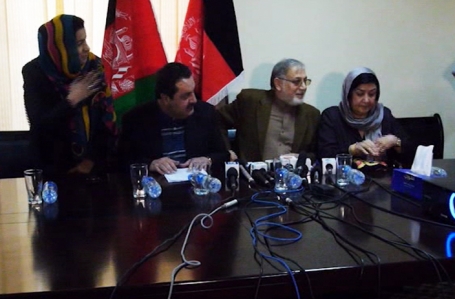
A number of commentators have questioned the positive review of the Independent Election Commission's (IEC) performance during the election process that was offered by the Deputy Chair of the commission on Monday.
At a press conference, Deputy Chair Abdul Rahman Hotaki defended the work of the election management body and maintained that the only way any IEC members would be fired from their post would be if the National Assembly passed a law changing the laws regarding job descriptions and authorities of the IEC. He also said the presidential and provincial council elections were an overall success.
However, others have not been so positive about the IEC’s performance and the election process this year more generally. Former IEC Chief Fazel Ahmad Manavi said that it would be more dignified if the IEC acknowledged its mistakes and those responsible resigned.
“I think they should have shown modesty […] all are aware that the elections not only insulted Afghanistan, but it also defamed democracy in Afghanistan,” Manavi told TOLOnews. “It would be better if members of the IEC judge their own deeds and resign from their posts in a civilized manner,” he added.
The former head of the IEC also said the election law’s section pertaining to the commission should be changed. For the time being, he argued that parliamentary elections be held on the basis of a decree by the president. “The law pertaining to the job descriptions and authorities of the election commission must be amended, suspended or dissolved, and the parliamentary elections should be held on the basis of a legislative decree from the president, because this law is weak and makes no sense.”
Election monitoring groups have also criticized the IEC deputy’s comments on Monday. Many have demanded electoral reforms and legal action be taken against those who contributed to the troubles that brought this year’s process to the edge of crisis.
“The plotters involved in the electoral crisis must be dealt with in line with the fundamental reforms recommended in the political agreement and legal investigations should be part of this,” said Zekirya Barakzai, the head of Afghanistan Democracy Watch (ADW).
The presidential election dragged out over six long months, seeing two rounds, fraud accusations, official resignations and the largest vote audit in world history. The Abdullah Abdullah campaign at points claimed the IEC had rigged the election in favor of his opponent.
Ultimately, though, the impact of this year’s process went far beyond the results. Uncertainty caused by the election led to a national economic downturn and ramped up Taliban offensives around the country.



